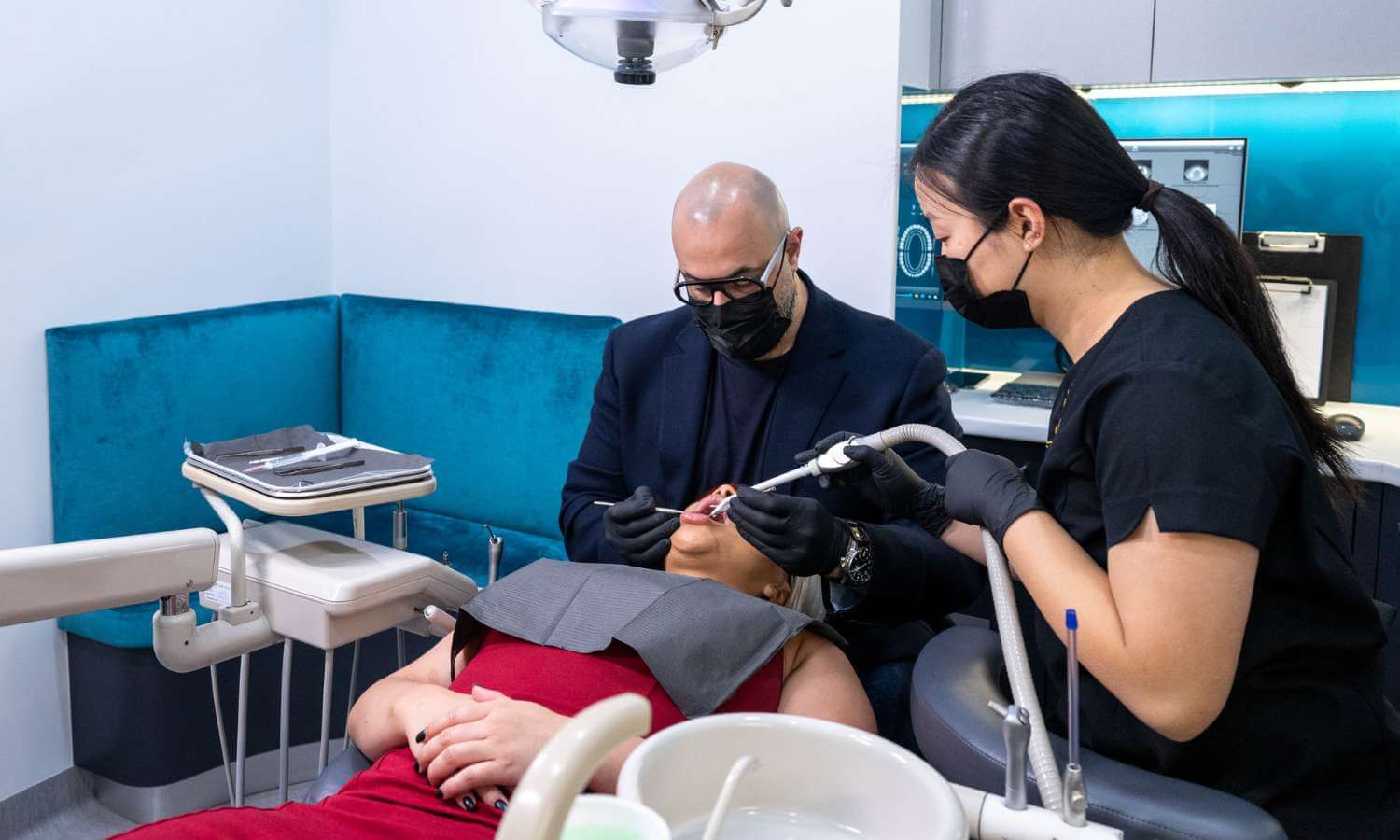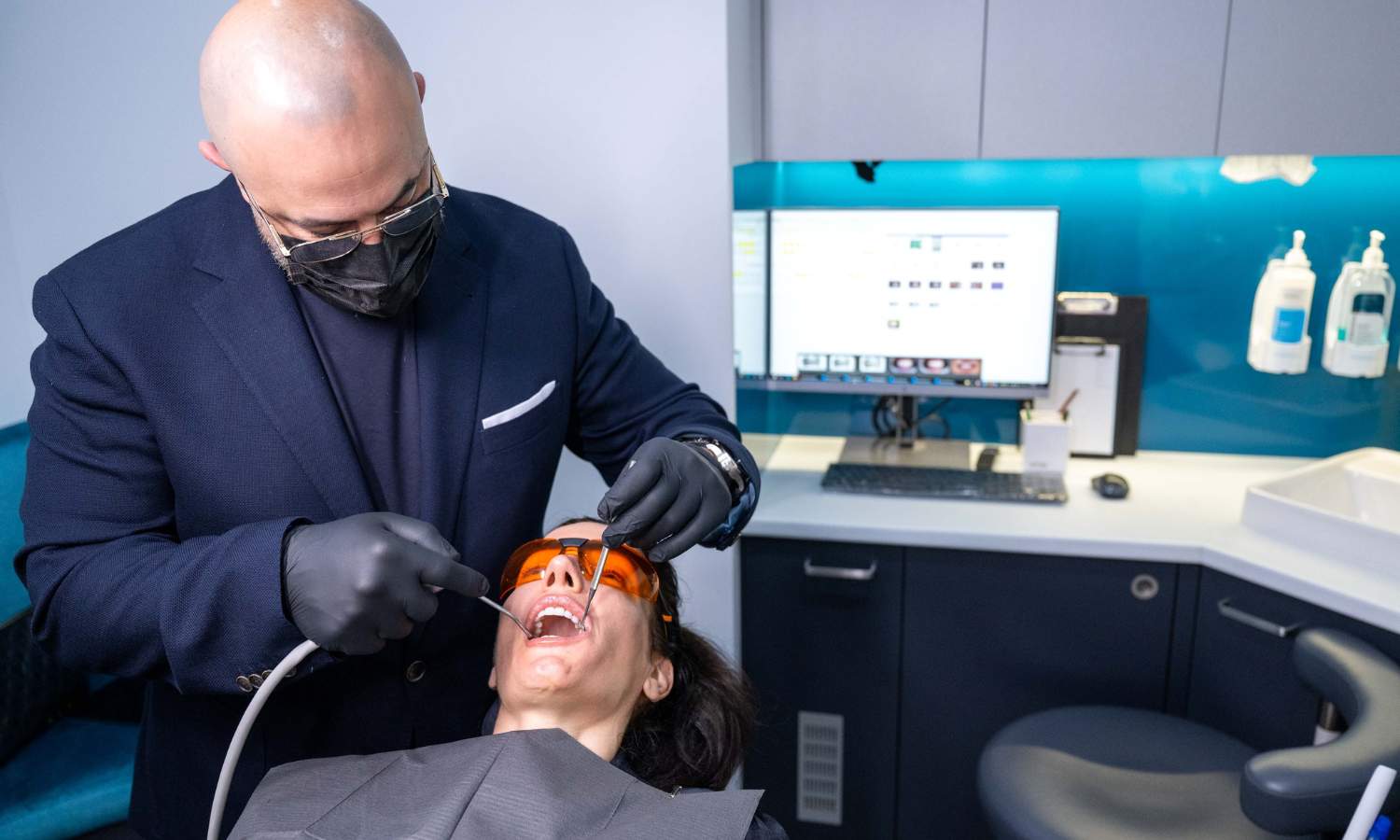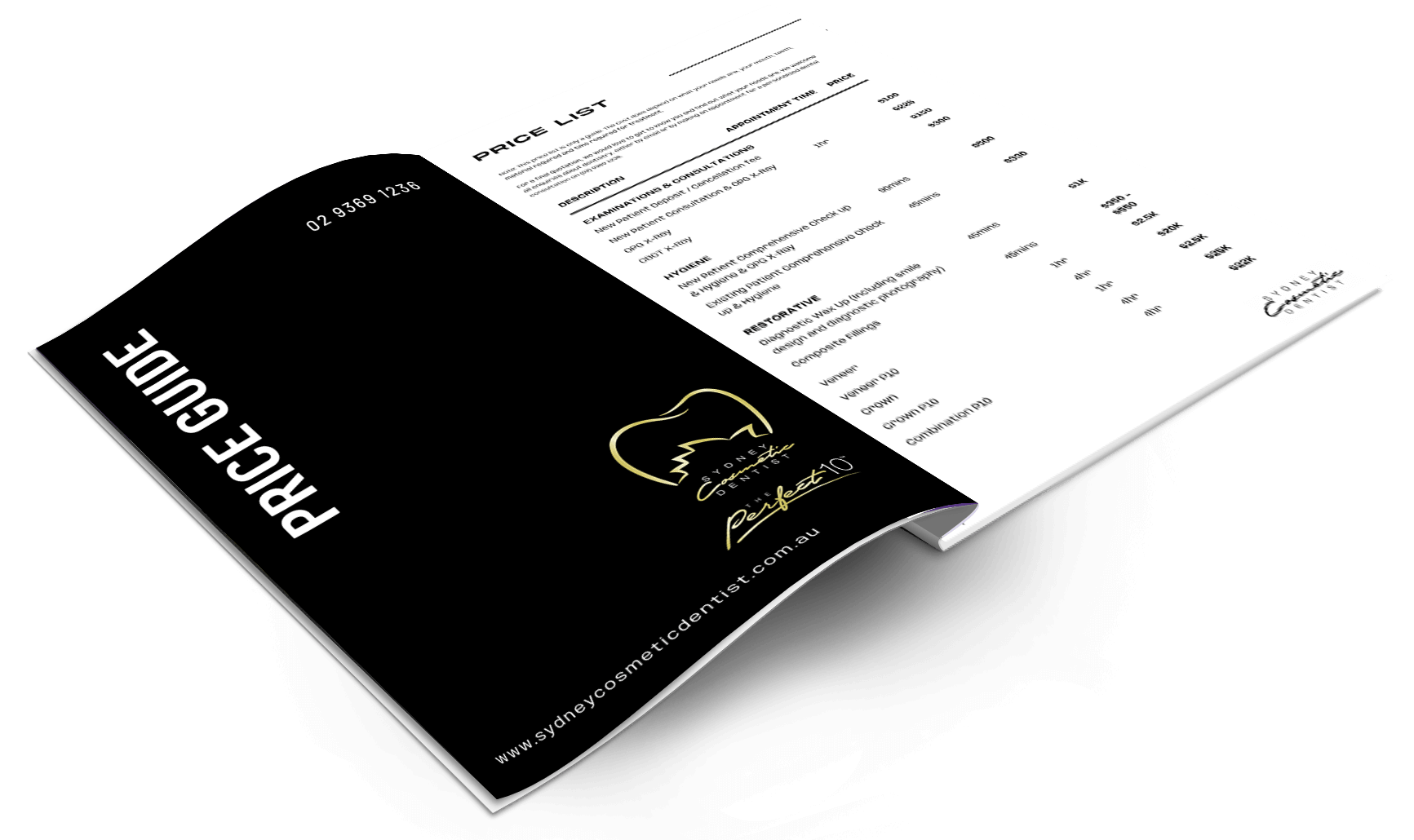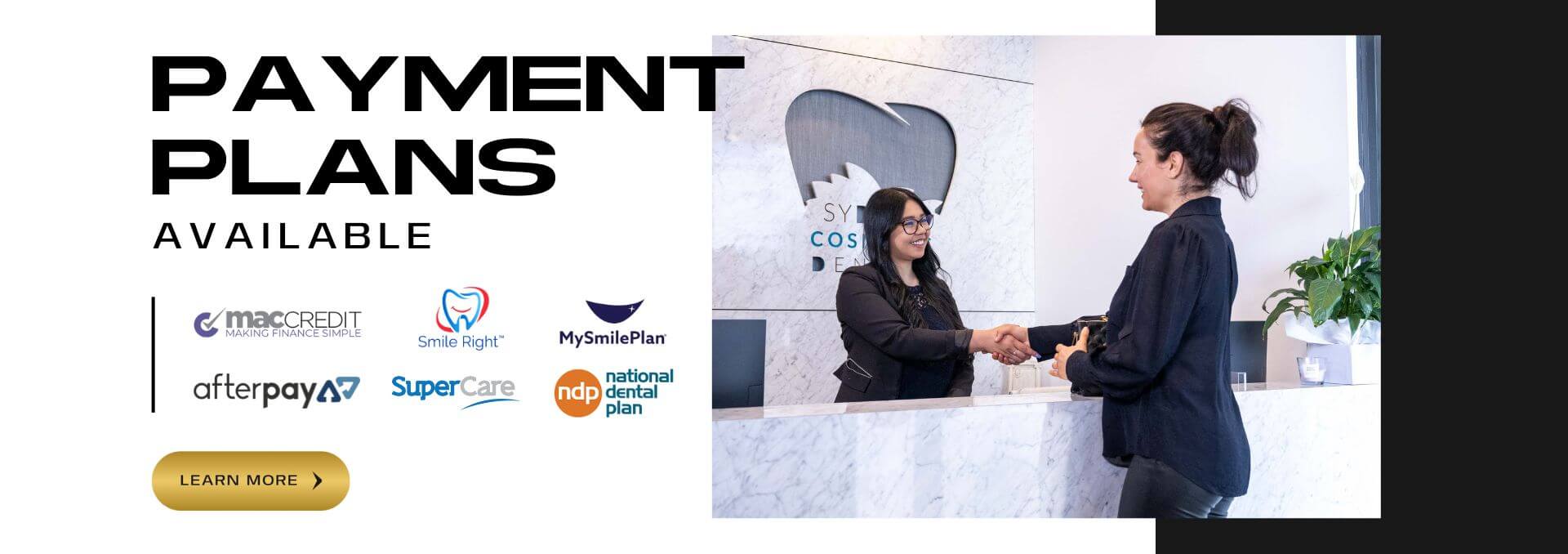Wisdom Teeth Removal
Wisdom Teeth Removal Bondi, Bondi Junction, Sydney
1 Introduction

Not everyone needs their wisdom teeth removed, but sometimes problematic wisdom teeth can cause distress, pain, and damage to other teeth. Dr Peter Poulos and our team at Sydney Cosmetic Dentist in the Eastern Suburbs’ Bondi Junction take a wait-and-see approach to wisdom teeth removal. We can monitor your teeth with regular dental checkups, and if we see potential problems, we will carefully remove them, going out of our way to make sure the procedure is as comfortable as possible for you.
2 Third Molars
The Third Molars
Wisdom teeth are the third molars and the very last to grow in. Located on both the top and bottom arches, they are the molars in the very back of your mouth, at the end of each row on the top and bottom. In some cases, these teeth may simply erupt through the gum and grow into place without being noticed. However, for some patients, these teeth can have issues if they grow incorrectly or if there is not enough room in your mouth to accommodate them.
If wisdom teeth cause problems, they can cause a lot of pain and even damage your other teeth by pressing on them. Quite often, they push the molars next to them, creating crowded teeth that can only be fixed with orthodontics. Wisdom teeth that grow sideways or don’t erupt at all can cause pain and teeth damage that is difficult to diagnose. Removing wisdom teeth is the best solution to stop the damage and save your teeth.
3 SIGNS AND SYMPTOMS
Signs and Symptoms of Problem
Wisdom Teeth

When patients think of problem wisdom teeth, impaction is the first thing that comes to mind. Impacted wisdom teeth are usually a result of a lack of room in the jaw, causing these molars to grow incorrectly. They can grow towards the molars in front of them and push on the other teeth, or in some cases, they may never erupt through the gum. An x-ray is the only way to see how your wisdom teeth are growing and if they will be a problem.
However, wisdom teeth can have different problems than impaction. If a tooth has partially erupted, food debris and bacteria can get trapped around it and lead to a hidden cavity or gum infection. If they are hard to reach while brushing, dental plaque or calculus can build up and cause gum disease or tooth infection.
Regular dental checkups and cleanings can help us monitor your wisdom teeth and catch problems early. If you haven’t had regular monitoring of your wisdom teeth, we can still use diagnostic tools to see how they are growing in and determine if they may cause future problems. Some patients prefer to have an extraction to avoid the hassle of trying to reach them for cleaning and to ensure they won’t cause any problems, while other patients may need them removed to improve their oral health. The following are some signs and symptoms of problem wisdom teeth:
3 SIGNS AND SYMPTOMS
Signs and Symptoms of Problem
Wisdom Teeth

When patients think of problem wisdom teeth, impaction is the first thing that comes to mind.
Impacted wisdom teeth are usually a result of a lack of room in the jaw, causing these molars to grow incorrectly.
They can grow towards the molars in front of them and push on the other teeth, or in some cases, they may never erupt through the gum.
An x-ray is the only way to see how your wisdom teeth are growing and if they will be a problem.However, wisdom teeth can have different problems than impaction.
If a tooth has partially erupted, food debris and bacteria can get trapped around it and lead to a hidden cavity or gum infection.
If they are hard to reach while brushing, dental plaque or calculus can build up and cause gum disease or tooth infection.
Regular dental checkups and cleanings can help us monitor your wisdom teeth and catch problems early.
If you haven’t had regular monitoring of your wisdom teeth, we can still use diagnostic tools to see how they are growing in and determine if they may cause future problems.
Some patients prefer to have them removed to avoid the hassle of trying to reach them for cleaning and to ensure they won’t cause any problems, while other patients may need them removed to improve their oral health.
The following are some signs and symptoms of problem wisdom teeth:
4 REMOVAL
Wisdom Teeth Removal for Adults and Teens

Dr Peter Poulos takes patient comfort seriously and will take great care to gently remove your wisdom teeth. Anaesthetic is usually sufficient for most patients, as it numbs the tooth and surrounding area of the mouth, so you feel no pain. If you suffer from dental anxiety, we can provide sedation dentistry, and if your wisdom teeth require oral surgery to remove, then sleep dentistry might be the ideal solution for you.
4 Removal
Wisdom Teeth Removal for Adults and Teens

Any patient can have their wisdom teeth removed if needed.
Removing them can spare your other teeth from damage and bring relief to those who experience pain or pressure in the jaw or ear.
Teenagers and young adults who have their wisdom teeth removed heal the quickest as they are younger, with a stronger healing response.
However, mature adult patients can also have them removed and may simply require a few extra days of healing time.
Dr Peter Poulos takes patient comfort seriously and will take great care to gently remove your wisdom teeth.
Anaesthetic is usually sufficient for most patients, as it numbs the tooth and surrounding area of the mouth, so you feel no pain.
If you suffer from dental anxiety, we can provide sedation dentistry, and if your wisdom teeth require oral surgery to remove, then sleep dentistry might be the ideal solution for you.
5 THE PROCEDURE
The Procedure to Remove Wisdom Teeth
If you need your wisdom teeth removed, Dr Peter Poulos will diagnose why your teeth are causing problems and find the best way to remove them. Most patients will have simple extractions, but if oral surgery is needed, there’s no need to worry. Thanks to sedation and sleep dentistry services. Remember, our priority is your comfort, and we are committed to providing you with a low-stress and comfortable environment. The following steps make up the procedure to have wisdom teeth removed:
6 PRICE LIST
Download Our Complimentary Price List

Download Our Complimentary Price List
7 RISKS
Risks of Removing Wisdom Teeth
Wisdom teeth removal is a very common procedure that carries common risks of initial swelling and possible pain or jaw ache after the anaesthesia wears off. Swelling is common as this is your body’s normal healing response, and the discomfort should resolve within a few days. As your situation and method of removal are unique to you, Dr Peter Poulos will provide customised instructions to support the healing process.
Oral surgery will require a longer healing time, while those who have a simple extraction of just one wisdom tooth will heal sooner. The average time is four days, with younger patients recovering sooner, and more mature patients may need a few more days and more rest.
8 CONTACT US
Need Your Wisdom Teeth Removed?

Need Your Wisdom Teeth Removed?
Disclaimer: The material posted is for informational purposes only and is not intended to substitute for professional medical advice, diagnosis or treatment. Results vary with each patient. Any dental procedure carries risks and benefits. If you have any specific questions about any dental and/or medical matter, you should consult your dentist, physician or other professional healthcare providers.









